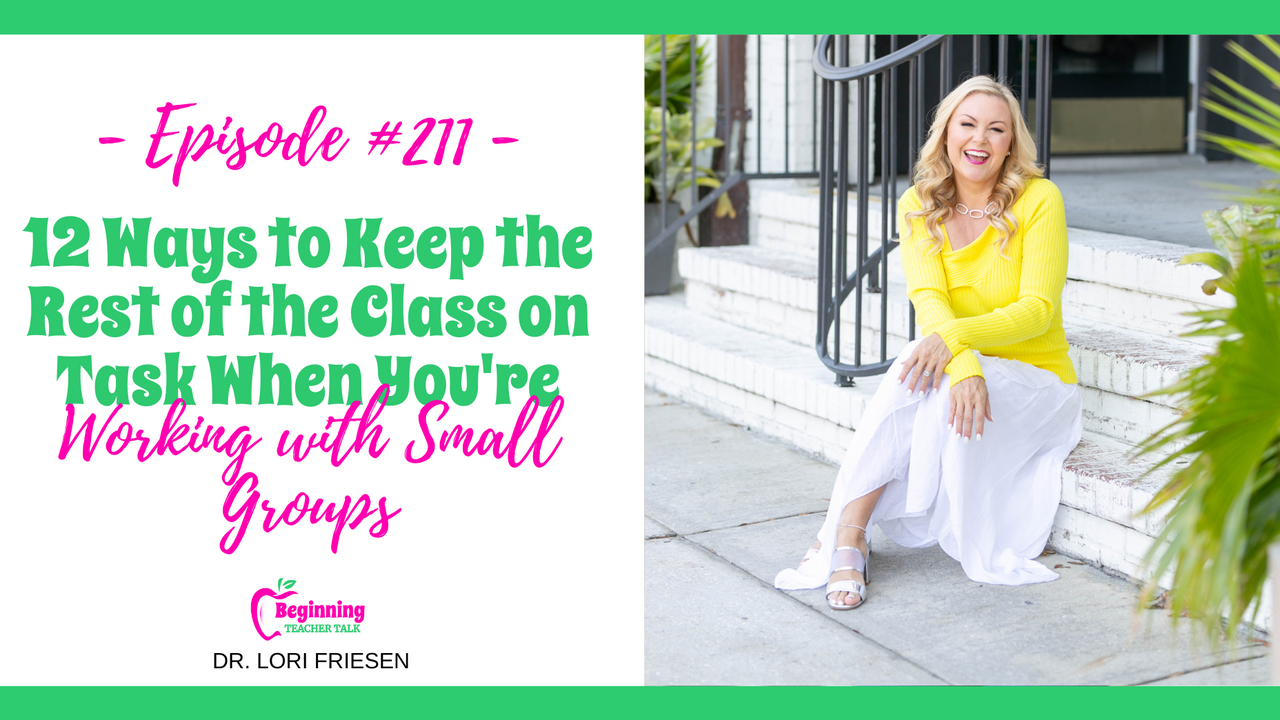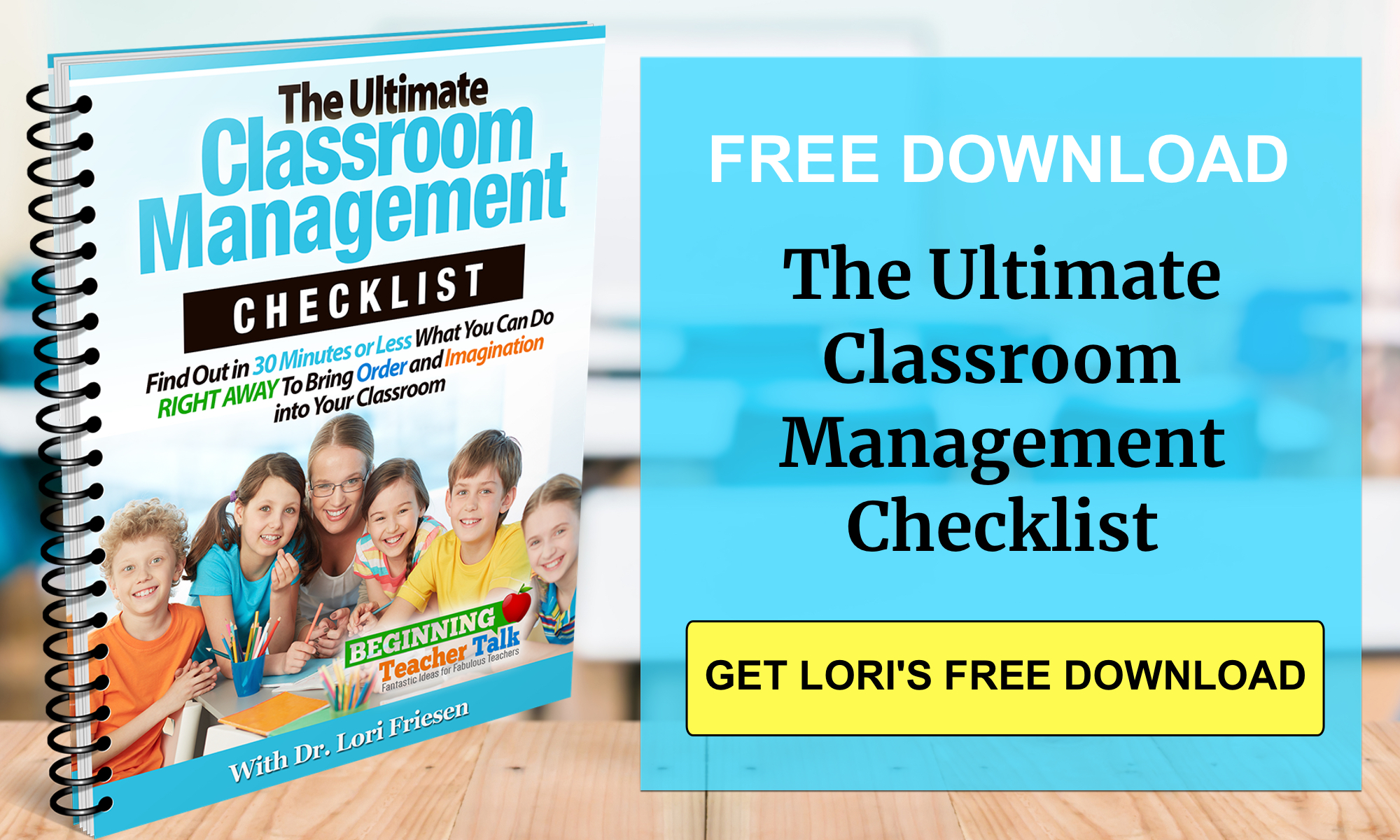12 Ways to Keep the Rest of the Class on Task When You’re Working with Small Groups

Click the play bar below to listen to this week's show now:
Show Notes:
Raise your hand if you’ve ever experienced the struggle of running small groups. 🙋🏻♀️
You’ve planned and prepped for each group and you’re ready to go. You set your timer for 15 minutes, and you’re barely two minutes in when you look up and see..
👦🏻 Johnny is standing over you asking you to open the ink pad for the word work stamps.
💻 Cathy is walking over with her computer because she needs help logging in.
📚 Mary and Anita are playing rock paper scissors instead of reading independently.
🤨 Jeremy is wandering aimlessly around the classroom because he doesn’t know what he should be doing.
✏️ Then you hear the sound of the electric pencil sharpener, and that’s the last straw! You’re so busy taking care of all of these disruptions that you aren’t actually getting anything done with your small groups.
So, what’s the secret? How are you supposed to keep your class on task so that you can run effective small groups? You want to ensure that small group time isn’t wasted time, and that every student is engaged, whether they are working with you or working independently.
So many of you, myself included when I first started teaching, really need help figuring this out. That’s why I’m going to share 12 strategies that you can use to help keep the rest of your class on task when you’re working with small groups. These are simple, yet effective strategies that you can begin implementing right away!
Here are those 12 tips:
- The work that the rest of your class is doing when you're working with a small group should be review work.
- Be sure that the process for the work that they need to complete isn't too complicated.
- Think about choosing work that students can complete from their desks.
- Don’t start small group work until after at least the first month of school.
- Be sure that you've clearly taught your expectations for what your students can be doing, and what they cannot be doing during small group time.
- Use the strategy “three before me”.
- Be sure that you are not asking your students to work independently for more than about five minutes in the beginning.
- Use a “special person” award.
- Try using a “quiet manager”.
- Create a “doughnut disturb me” teacher headband.
- Use yellow help cards.
- Implement a classroom “waiting room”
The key is to model and practice these strategies with your students as clearly as you would any other routine in your classroom. If teaching routines and expectations is something that is challenging for you, and you want a bit of help troubleshooting to figure out where things may be going wrong, be sure to scoop up a free copy of my Ultimate Classroom Management Checklist.
My last important piece of advice I want to give you is to remember that our job is to stay flexible. Don’t expect the same strategy to work all year long. Instead, I really encourage you to keep a problem solving mindset.
Always stay on the lookout for creative new ideas to use with your students. The longer you teach, the more ideas you'll be able to add to your toolbox. We can’t expect that same strategy to work all year long!
Inside this week's show, you'll learn:
- That giving students review work is just as valuable as teaching new content.
- Why keeping independent work as desk work will prevent a lot of distractions.
- How to teach the “3 before me” rule, and other similar student-led strategies.
- The importance of starting small, and building up independent work endurance over time.
- Fun incentives that you can use with your students to encourage independence.
- Ideas for visual reminders that can be used to signal that the teacher is busy and shouldn’t be disturbed.
Links & resources mentioned inside this episode:
- Download your free copy of my Ultimate Classroom Management Checklist.
- Check out my Ultimate Amazon New Teacher Wishlist.
- Enter to win a $25 Amazon gift card by leaving a review for Beginning Teacher Talk on Apple Podcasts!
- Join our Beginning Teacher Talk Private Facebook Group.
- Follow Dr. Lori on Instagram.
- NEW! Follow Beginning Teacher Talk on TikTok.
I hope this information is helpful as you prepare for your first, second, or third year of teaching. Until next time, remember, just because you're a beginning elementary teacher, there's no need for you to struggle like one.
💛 Lori
 Dr. Lori Friesen | Beginning Teacher Mentor
Dr. Lori Friesen | Beginning Teacher Mentor
Creator of the R.E.A.D.Y. for School Academy, Dr. Lori Friesen has mentored thousands of beginning teachers across the country through her workshops and courses. Host of the popular podcast, Beginning Teacher Talk, and creator of the innovative literacy program for 1st and 2nd grade, Dogs Help Kids Read and Succeed, Dr. Lori is dedicated to serving educators and inspiring learners. Learn more at drlorifriesen.com and at howdogshelpkids.com.
Want to listen on a different platform? Here are the links:
Click here to listen on Apple Podcasts.
Click here to listen on Spotify.
Click here to listen on Stitcher.
Click here to listen on iHeart Radio.
Related episodes you might enjoy:
- Why You’re Struggling with Classroom Management: What Nobody Told You
- How to Set Up Your Teacher Planning Binder: Your Essential Classroom Management Tool
- Spring New Teacher Training Series #4: How to Get Started with & Make the Most Out of Small Groups in Reading with Alison Ryan & Sara Marye
- The Best Classroom Management Technique Ever: How to Get Your Entire Class’s Attention Instantly
- How to Create Your Classroom Management Plan: Materials, Routines, Rules & Class Jobs
Follow:
Are you following my podcast? I release fresh, new content every single week and I don't want you to miss out! 💛 Click here to follow on Apple Podcasts.
Leave a Review ⭐️⭐️⭐️⭐️⭐️
If you are loving the podcast, I would be so grateful if you would leave me a review over on Apple Podcasts. Each time you leave a review, Apple Podcasts recommends my podcast to other new teachers so they feel a little less alone as they navigate their first few years of teaching. Just click here to review, select “Ratings and Reviews” and “Write a Review” and let me know how this podcast is helping you inside your classroom!
Stay connected for surprise goodies & updates!
Join our mailing list to receive the latest news from our team. 💛💕 Your information will not be shared.











